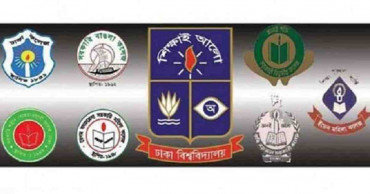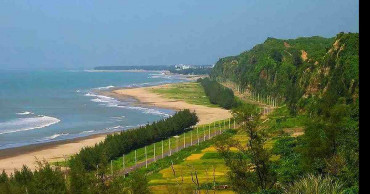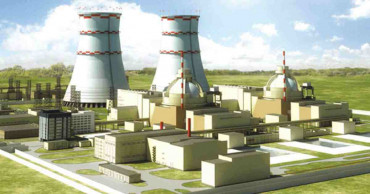special
Uncertainty clouds future of DU-affiliated college students
Tamim Ahmed wants to become a police officer after completing his master’s from Dhaka University. But uncertainty now clouds his road to the future as he is not even sure when he can complete his four-year bachelor's degree.
Dhaka aims at easing foreign concerns for companies exiting China
Bangladesh is looking at simplifying its foreign direct investment (FDI) policy as well as the corporate taxation system to lure companies seeking to move their manufacturing base from China in view of the Covid pandemic, UNB has learnt.
Sundarbans set to reopen to tourists soon
After seven months of closure due to the Coronavirus pandemic, the Forest Department is expected to reopen the Sundarbans, the world’s largest mangrove forest and a Unesco World Heritage Site, soon to tourists.
Tourists are expected to be allowed to enter the Sundarbans tourist spots from early November, authorities said.
Meanwhile, tour operators have already completed preparations after receiving the green signal.
8 years on, new Khulna jail is still a project under construction
Relief is nowhere in sight for an estimated 2,000 inmates crammed into the over 600-capacity Khulna District Central Jail, with slow bidding process, land acquisition hurdles and design flaws casting a shadow over the prison modernisation project.
Floods destroy schools and dreams in Kurigram
In the five upazilas of Kurigram district, where residents are reeling from flooding, many families worry not only about being displaced from their homes, but also what's in store for their children as almost all the schools in the region have sustained permanent damage.
Nusrat Murder: Family’s wait to see verdict execution doesn’t end
Although one year has elapsed since a tribunal delivered its verdict in Feni madrasa student Nusrat Jahan Rafi murder case, her family’s wait to see the execution of the verdict is yet to end.
Sea tourism can help Bangladesh beat Covid blues: Experts
For a country that has the world's largest mangrove forest Sundarbans, the good old port of Chattogram, sandy beach Cox’s Bazar, the beautiful Teknaf peninsula and eye-catching Saint Martin Island, "sea tourism" can help beat Covid blues by generating billions of dollars. All that's needed is an integrated initiative to connect these popular destinations by marine terminals, say experts.
Timely execution of Rooppur power transmission projects looks uncertain
The timely execution of a number power transmission projects taken for electricity evacuation from the upcoming 2,400 MW Rooppur Nuclear Power Plant (RNPP) looks uncertain as the Indian financing agency is taking ‘unusual’ time to give a go-ahead for the bidding process.
NBR pulls out all stops to expand tax net
To tighten the noose around tax evaders and expand the tax net, the National Board of Revenue (NBR) is pulling out all the stops.
No downside to wearing a mask: Experts
Though wearing protective face masks is essential in public places amid the Covid-19 pandemic, there is a growing public apathy towards using this safety gear.

.jpg)














